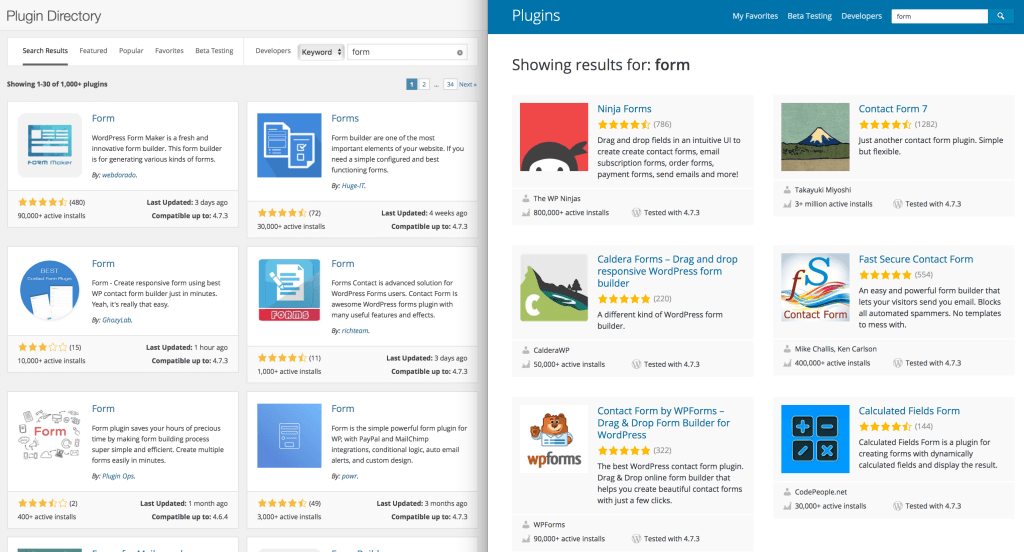The Meta team, the team responsible for maintaining and managing WordPress.org websites, announced the launch of the new WordPress plugin directory yesterday.
This latest evolution was announced as an Open Beta at WordCamp Europe 2016. Now, after nearly a year, the final version is public. A variety of improvements have been made, both internal and tangible:
- A new back-end based on WordPress, to replace the old bbPress engine.
- Refactored API code, also open source.
- A complete visual redesign and open-source theme.
- A completely open-source codebase.
- A vastly improved search engine.
Developers and testers running early versions of WordPress 4.8 have already been using the new API for a while now, and many in the #meta community have been testing and contributing to the new directory’s development.
For those of you seeing the new WordPress plugin directory for the first time, here is a rundown of some of its features that will interest both plugin developers and users:
The search engine has been completely replaced. Searches now return the most relevant results based on a combination of many factors including version compatibility, recency and popularity, in conjunction with text relevancy. Therefore, obsolete and unsupported plugins will show up less in search results than those in active development and use. They will be available, nonetheless.

The other improvement in the directory is the information about each plugin. The most important information about each will be shown up front, rather than on separate tabs. The description, screenshots, and FAQs will be visible together, with a simple scroll, without flipping to a separate tab. The team has simplified the page with a 2-column layout, removing extraneous navigation from the old 3-column one.

The team has focused enough on the accessibility of the repo which can be clearly seen in the new design – bigger font sizes and contrast, and better mark-up. The new design is readily responsive so excellent viewing experience is ensured.
In addition to those noticeable features, the entire back end of the site and API has been replaced with an open source WordPress plugin. The new directory is entirely open source and uses the best practices of modern WordPress development. Hence, it can be maintained and improved by a much wider community.
You can read the detailed post by clicking here.
What do you think about the new WordPress plugin directory? Let us know in the comments below.

